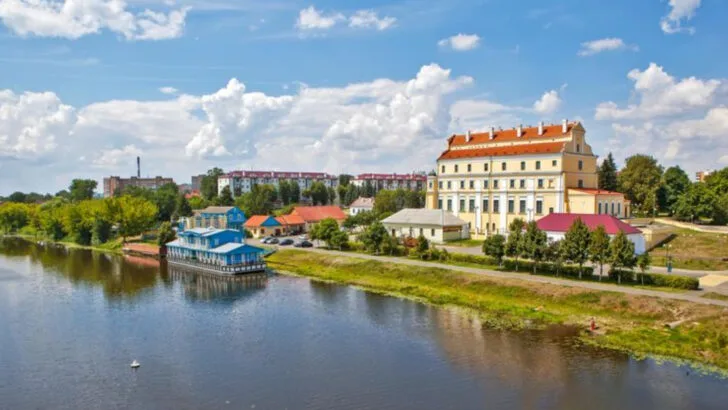Some places just aren’t worth the passport stamp. While travel is often painted as a glamorous, soul-enriching journey, it’s not all golden sunsets and perfect croissants.
Some destinations come with more headaches than highlights. Whether it’s sky-high prices with little return, chaotic infrastructure, or a vibe that’s just plain off, a few countries left us feeling more drained than dazzled.
We’re talking about spots where the food didn’t redeem the hassle, where safety came second to stress, and where “authentic” felt more like a tourist trap in disguise.
This isn’t about being picky—it’s about being real. We’ve roamed through more than 30 countries, and these nine? We won’t be booking a return trip. Not because we didn’t try, but because sometimes the juice just isn’t worth the squeeze. Let’s dive in.
Venezuela
Nestled in South America, Venezuela boasts stunning natural wonders such as Angel Falls, the world’s highest uninterrupted waterfall.
Despite its breathtaking landscapes, the country grapples with severe political turmoil, making it a challenging destination for tourists.
Economic instability has led to widespread food shortages, impacting daily life for locals and visitors alike. Safety concerns are a constant undercurrent, with sporadic violence and crime posing potential threats to travelers.
The combination of natural beauty and societal instability creates a perplexing dichotomy that leaves many would-be visitors hesitant to explore this vibrant nation.
North Korea
The enigmatic allure of North Korea draws curious travelers. However, those who venture within its borders find a tightly controlled environment, where constant surveillance is the norm.
Tours are carefully curated, offering a glimpse into the country’s facade rather than its cultural core.
Interaction with locals is limited, leaving visitors with a sense of observing a staged performance rather than genuine cultural exchange. The lack of authenticity and personal freedom often leads to an uncomfortable experience, with tourists feeling more like passive spectators than active participants in North Korean life.
Somalia
Enticing beaches and rich cultural heritage dot Somalia’s landscape, but these are overshadowed by the nation’s reputation for danger.
High levels of crime, including kidnappings and piracy, pose significant risks to anyone daring enough to visit. The country’s beautiful coastline contrasts sharply with the reality of instability and insecurity.
Travelers must weigh the allure of Somalia’s natural and cultural offerings against the perils of its uncertain safety situation. The challenges of navigating such a precarious environment often make Somalia an unviable option for the average tourist seeking a peaceful getaway.
Turkmenistan
Turkmenistan, with its marble-clad capital, Ashgabat, is a country of contrasts. Obtaining a visa can be notoriously difficult, and those who succeed in entering often find a surreal, overly sanitized cityscape.
The capital’s gleaming facade offers little room for spontaneous exploration, as strict government controls limit interactions and experiences.
While the country’s historical sites hold intrigue, the lack of genuine engagement with the local culture leaves much to be desired. This sterile environment, paired with bureaucratic hurdles, often renders Turkmenistan a less-than-ideal destination for those seeking authentic travel experiences.
Libya
Home to majestic Roman ruins like Leptis Magna, Libya offers glimpses of grandeur from a bygone era. Yet, the allure of exploring these ancient treasures is marred by ongoing conflict and political turbulence.
The nation’s instability raises serious safety concerns, deterring all but the most adventurous of travelers.
The juxtaposition of historical splendor with modern-day chaos creates a tension that is palpable. Travelers must navigate not only the physical terrain but also the complexities of a nation in turmoil, making Libya a challenging, if not impossible, destination for most.
Chad
Chad’s sprawling desert vistas offer a stark, raw beauty that captures the imagination. However, this African nation is fraught with logistical challenges that hinder tourism.
Extreme heat and a lack of infrastructure pose significant obstacles for travelers. The cost and difficulty of acquiring visas add another layer of complexity, creating barriers to entry.
While the desolate landscapes may entice those seeking adventure off the beaten path, the practical realities of visiting Chad often outweigh its aesthetic appeal. For many, the vision of its untamed wilderness remains just that—a distant dream rather than a feasible reality.
Haiti
Haiti, with its vibrant culture and colorful art scene, offers a unique Caribbean experience.
Yet, frequent political unrest casts a long shadow over its potential as a tourism hotspot. Infrastructure challenges complicate travel, while safety concerns can overshadow the island’s natural beauty.
For those willing to explore its lively streets and spirited culture, the rewards are plentiful. However, the persistent threat of instability requires a degree of caution that many travelers find daunting.
The juxtaposition of Haiti’s rich cultural tapestry against its turbulent socio-political landscape makes it a destination of contrasts and complexities.
Iraq
Iraq’s storied past, from the ancient ruins of Babylon to the vibrant culture of Kurdish regions, captivates history enthusiasts.
However, the shadow of conflict looms large, creating an environment fraught with danger. While Iraqi Kurdistan is increasingly opening to tourism, much of the country remains inaccessible.
The delicate balance between historical exploration and present-day risks requires careful consideration.
For those brave enough to navigate its challenges, Iraq offers a rare glimpse into a land of both ancient wonders and contemporary struggles. Yet, ensuring personal safety remains a primary concern for potential visitors.
Belarus
Belarus, with its Soviet-era architecture and controlled atmosphere, presents a unique travel experience.
Under tight governmental oversight, the country can feel unwelcoming to those accustomed to open dialogue and freedom of expression.
The political climate imbues the nation with a sense of rigidity that permeates daily life.
Tours and interactions are often orchestrated, leaving visitors with a sense of detachment from the true spirit of the place. This lack of warmth and spontaneity in the travel experience makes Belarus a less appealing choice for those seeking authentic cultural engagement.

